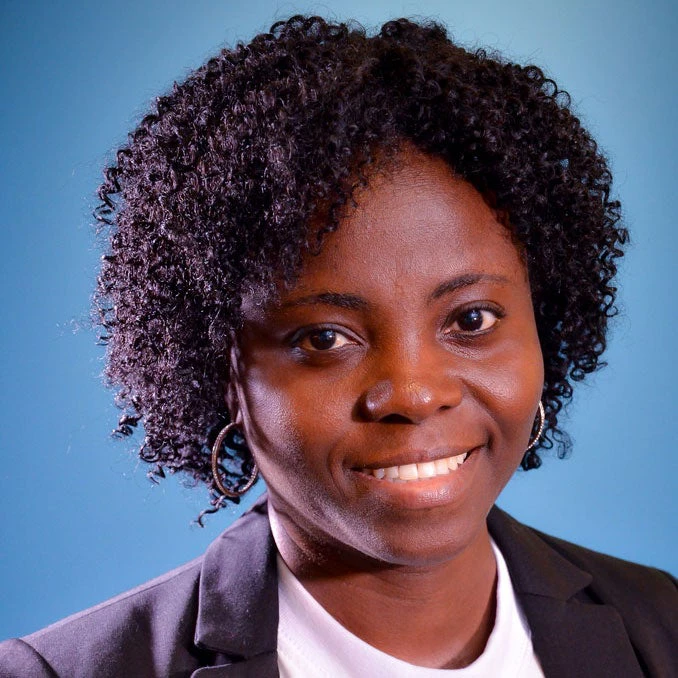 Nurturing Africa’s next generation of female scientists
Nurturing Africa’s next generation of female scientists
In an age of increasing digitalization, climate change concerns, and health crises such as the COVID-19 (coronavirus) pandemic, the critical importance of scientific and technological capacity is more evident than ever. Individuals with advanced skills in science, technology, engineering and mathematics (STEM) are crucial to push us to new frontiers as well as tackle urgent challenges. However, the potential of one group has been consistently under-harnessed in this regard: women.
Sub-Saharan Africa (SSA), like much of the world, has a large disparity in the number of women in science - only 30% of science professionals in SSA are women. Research has shown several factors contributing to the underrepresentation of women in STEM—negative stereotypes about girls’ and women’s capability in STEM fields, discrimination against women in the classroom and workplace, and traditional gender roles that place the burden of domestic responsibilities disproportionately on the shoulders of women, leaving them less time to work in labs, attend conferences and build networks. Removing these barriers is an essential step towards closing the gender gap and giving women an equal chance at succeeding in STEM.
The good news is that efforts are already underway in the region with initiatives like the Africa Regional Scholarship and Innovation Fund for Applied Sciences, Engineering and Technology (RSIF) tackling the underrepresentation of women in STEM at the higher education level. The RSIF, which is supported by regional funds from the International Development Association and was approved by the World Bank Board in 2018, aims to train the next generation of highly skilled African scientific leaders, researchers and innovators who can find solutions to critical development challenges. Since 2018, RSIF has supported 30 women with an additional 44 women expected to join the program by September 2021, for a total of 40% of all scholars.
The RSIF female scholars include dynamic young women like Jacinta Okwako from Kenya and Fatoumata Thiam from Senegal who are undertaking valuable research in solar energy materials and the use of Internet of Things and Artificial Intelligence (AI) for sustainable agriculture. Jacinta, a university lecturer, hopes that her research will provide a breakthrough in affordable solar energy materials that would allow even the common citizen to purchase solar panels and have access to energy. She dreams of an Africa with 100% energy access, and as a lecturer and researcher, wants to nurture innovative ideas among her students to make advancements in the energy field. On the other hand, Fatoumata is investigating the use of the Internet of Things and AI to design an automated and self-optimized irrigation system in the Sahel area. Her research will facilitate water access for farmers in a region threatened by scarce rainfall and unpredictable weather and aims to not only improve crop yields but also save water in the process.
RSIF recognizes that supporting these female researchers to perform to their highest potential requires deliberate and sustained efforts. The RSIF gender strategy sets an ambitious target for women’s representation among its PhD scholars–50% of the target scholars. The goal of the gender strategy “is not to advantage women relative to men, but rather to level the playing field and ensure equal opportunity for women and men”. The program is also developing a formal mentoring program to enable RSIF scholars to receive guidance from experienced individuals in their field and is creating gender-sensitive codes of practice in the support and supervision of the scholars by the African Host Universities and International Partner Institutions.
Further, RSIF is supporting its female PhD students to publish their research and promote it widely. Africa contributes to less than 1% of the world’s scientific output and RSIF’s efforts are helping to close this gap. Publication of research by Africans for African challenges is important for the emergence of homegrown solutions that can be translated into policies and practices highly contextualized to the local situation. A greater representation of women among such published researchers will not only add to the diversity of thought and innovations but will also inspire more young girls to take up science and pursue similar dreams.
Women have vital contributions to make to science and can serve as thoughtful leaders with novel solutions to complex development challenges. In Africa, scientists like Wangari Maathai, a passionate environmental conservationist who won the Nobel Peace Prize, and Francisca Nneka Okeke, an accomplished physicist whose work is furthering our understanding of climate change, have shown that their voice and work have considerable impact on society and sustainable development of countries. We must actively seek to foster female talent in STEM to nurture more such influential leaders and benefit from the ingenuity, expertise and fresh perspectives they have to offer.






Join the Conversation